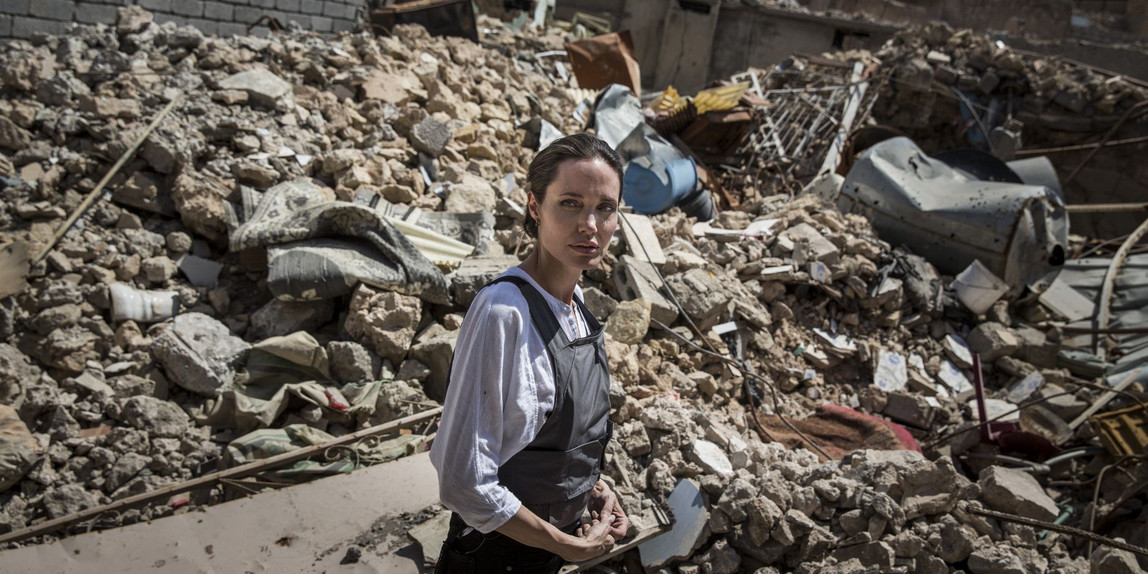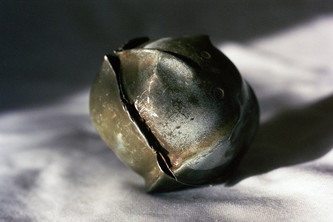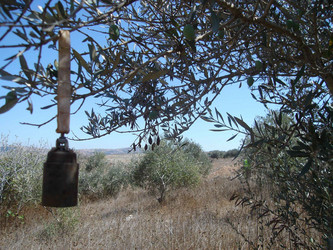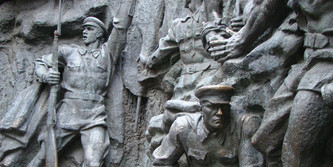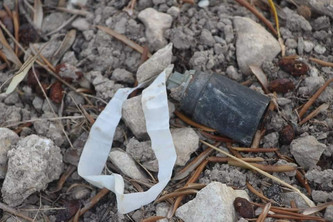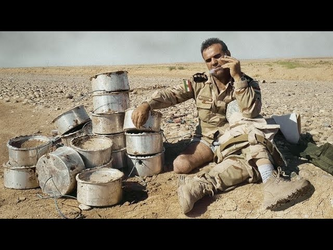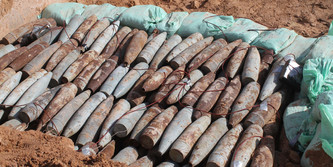Irak: Angelina Jolie besucht Mossul
Schauspielerin Angelina Jolie hat als Botschafterin für das UN Flüchtlingswerk UNHCR Mossul besucht. Die Rückeroberung Mossuls gilt als größter Städtekampf seit dem zweiten Weltkrieg. Massive Bombardierungen haben die Stadt fast komplett zerstört. (auf Englisch)
© UNHCR/Andrew McDonnell
Quelle: UNHCR
UNHCR Special Envoy Angelina Jolie today visited West Mosul, less than a year after the city’s liberation in June and July 2017. The visit marked Jolie’s 61st mission – and her fifth visit to Iraq – with the UN Refugee Agency since 2001. She arrived in the city on the second day of Eid al-Fitr, the Muslim holiday marking the end of Ramadan.
Jolie walked among the bombed-out buildings that line the narrow streets of the Old City and met displaced families to discuss efforts to rebuild the city and the needs of the returning population.
West Mosul was held captive by ISIS for three years. The combat operation to re-take the city was the largest and longest urban battle since World War II, and the wreckage reminiscent of Dresden. Civilians faced aerial bombardment, artillery barrage, cross-fire, snipers, and unexploded ordnance. Hundreds of thousands of people were subjected to siege-like conditions, used as human shields or targeted as they fled the city. Large swathes of West Mosul were flattened. Many residents are now slowly returning, to scenes of complete destruction. Like residents of other former ISIS strongholds, they have suffered nearly unprecedented levels of psychological trauma.
UNHCR is helping many returning families, with programs including cash assistance to rebuild their homes, legal representation for family members who have been arbitrarily detained because of mistaken identity, and help to obtain essential legal documents that were confiscated, destroyed or denied during the occupation.
Speaking in front of the ruins of al-Nuri Mosque, Special Envoy Angelina Jolie said:
“This is the worst devastation I have seen in all my years working with UNHCR. People here have lost everything: their homes are destroyed. They are destitute. They have no medicine for their children, and many have no running water or basic services. They are still surrounded by bodies in the rubble. After the unimaginable trauma of the occupation, they are now trying to rebuild their homes, often with little or no assistance.
...
Lesen Sie hier den vollständigen Artikel
Lesen Sie weiter
Neuigkeiten
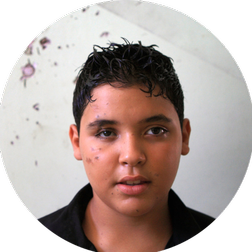
Nein zu Streubomben!
Spenden Sie jetzt für unseren Einsatz gegen Streubomben! Verhindern Sie, dass noch mehr Kinder wie Mohamed schwer verletzt oder gar getötet werden. Retten Sie Leben und verhindern Sie bleibende Behinderungen.
